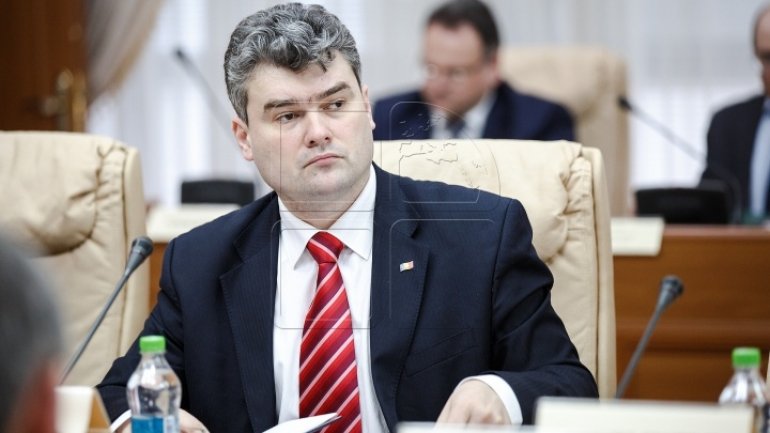Interview with Deputy Prime Minister for Reintegration Gheorghe Bălan: We obtained good results in Transnistrian settlement process
 foto: publika.md
foto: publika.md
We obtained lots of good results in the Transnistrian settlement process. Decisions taken in the socio-economic field could allow us to address political issues in the negotiation process.
The statements were made at the end of the mandate by the deputy prime minister for reintegration, Gheorghe Bălan in an exclusive interview for Publika TV.
I thank you for accepting this interview. We've made more progress in the Transnistrian settlement in 2017. First, I refer to the four protocol decisions that were signed on November 25. One of these decisions concerns the tariffs imposed on Romanian-teaching schools in the Transnistrian region. How will these institutions function from now on?
- Indeed, we have managed to find a solution to the issue of schools. The eight Romanian-teaching schools in the Transnistrian region will no longer be subjected to discriminatory approach by the de facto administration in Tiraspol. Communal payments will be made at the same level as other social or educational institutions in the Transnistrian region. Also, the rents for the spaces used will be reduced to a symbolic level. We can say that this is a considerable reduction. For example, the same Lucian Blaga high school in Tiraspol paid about 600 thousand lei a year for the rent. After identifying the solution and signing the contract, it should be at a level of several thousand lei per month. It is a radical change. We hope this will improve the conditions of education and ensure the right to study in the mother tongue for young people in the Transnistrian region.
The second protocol concerns the restricted access of farmers in Dubăsari district to their agricultural land on the Tiraspol-Camenca route. What procedures are regulated so that these farmers will be able to work their agricultural land?
- In 2013 Tiraspol representatives took the decision to block the farmers in Dubăsari district to the land they owned and located along the route. After several years of negotiations, we have identified a solution to return to the 2006 mechanism that has given these landowners access to their land from February to have unhindered access without impediments to their land and be able to start the spring work under normal conditions.
Another topic is to re-establish the telephone link between the two banks of the Dniester. When will we be able to assist the final solution to this problem?
- This has already begun. There have already been contacts, meetings, consultations between economic agents. We hope that this dialogue will materialize in the near future by restoring the stationary and mobile connection between the two banks in the interest of the population.
In 2017, it was also mentioned the apostille of the diplomas issued by the University of Tiraspol. How has this understanding been reached, especially I am referring to the neutral model of this diploma because there was much talk about this subject?
- We are aware that young people in the Transnistrian region are studying in different higher education institutions in the region. At present, we have found the solution to enable them to benefit from other international study programs or be able to be employed. For this it was necessary to apply the diplomas for studies in the region, issued by the Tiraspol University by the Ministry of Justice in Chisinau. In this sense, it was necessary to identify a solution with the neutral diploma and the neutral stamp. In this regard, these actions are due to be completed in the near future.